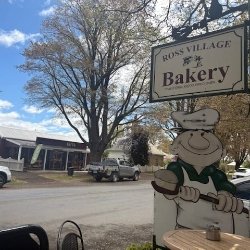Another concern when aging in Italy is…will I need a caregiver or will I move into a care home?
I often read that Italy and Japan are both at the top of the charts when it comes to their elderly population and life expectation.
It is certainly an amazing thing, but it's also often a complicated situation when it comes to aging people as, during old age, an event, even a simple one like a fall, can be devastating and drastically change an elderly person's life: from one day to the next, children (or, in their absence, grandchildren) suddenly find themselves wondering how to deal with the elderly the best way possible.
The classic scene that comes to mind is that of children gathered in the hospital corridor (perhaps the day after a parent has fallen and broken a femur): “So what do we do? Is a caregiver or a nursing home better?”
A question that's not easy to answer, but these children find themselves in urgent need of continuous assistance and constant care for their family member.
To best care for an elderly person, a family caregiver needs familiar spaces. Since this option involves staying in one's own home, I believe this would be the best option for an elderly person. Sometimes, in fact, just changing location is enough to cause difficulties for an elderly person. As we age, the five senses (especially hearing and sight) become less effective, as do many relational skills and the sense of security related to the surrounding environment. Any change can lead to a loss of clarity and psychological imbalances.
Obviously, home care must be provided by a trained and qualified person (with specific training courses) who knows how to perform their tasks (support with personal hygiene, proper handling of the person, meal preparation, etc.), but who also knows how to build a positive relationship with the elderly person and a trusting relationship with family members.
It's good to find the caregiver by word of mouth, but it’s crucial to ask the caregiver you're hiring if they have any training certificates, reference letters from families where they've worked before and perhaps even a criminal record certificate.
Residences for the elderly were created to accommodate frail elderly people or those in social situations that no longer allow them to care for themselves. By frail, I also mean an elderly person who, once the acute phase of an illness has passed, is no longer able to manage their recovery alone. In an elderly patient, an acute illness can be the transition from a state of self-sufficiency to a state of frailty.
In my humble opinion, the choice should be evaluated on a case-by-case basis: there are elderly people that upon entering a nursing home become depressed and let themselves die; others find themselves in a place where they can socialize and they feel reborn. Many elderly people, when welcomed into a socially stimulating environment, improve their lives.
An elderly person removed from their environment can become depressed, but if the nursing home offers stimulating activities, they can truly be reborn.
It is true that your family is always your family, your home is always your home: there's no doubt about it and, the older you get, the more you get tied to the affection and love of your loved ones.
Financially, considering the caregiver's appropriate employment status (which includes salary, contributions, paid vacation and severance pay), room and board, and a substitute for vacation, there's not much difference between the monthly cost of a family caregiver and the monthly fee for a nursing home (depending on the type of room and the facility though).
Organization-wise, the caregiver has her day off (you have to arrange a replacement) and can terminate her contract (then you have to find another one). The facility guarantees you 24-hour care, and unless the managers are crazy, the service is guaranteed continuously, and you don't have to worry about anything.































































